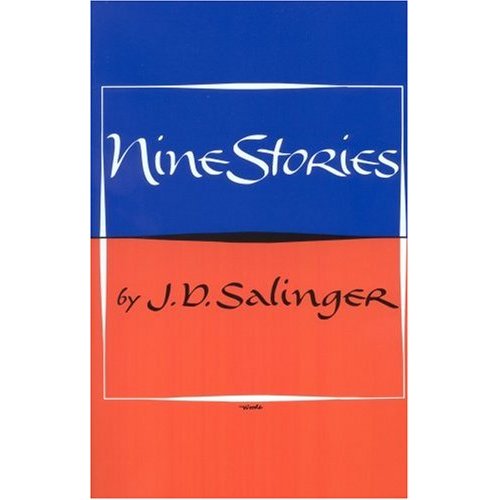Some novels I read this past month.

“We postmodern plátanos tend to dismiss the Catholic devotion of our viejas as atavistic, an embarrassing throwback to the olden days, but it's exactly at these moments, when all hope has vanished, when the end draws near, that prayer has dominion.” - p.144
The Brief Wondrous Life of Oscar Wao by Junot Díaz is indeed wonderful. It's bittersweet and funny as hell, a story about a few generations of a family and the modern Dominican Republic, moving towards Oscar's struggle for respect and love. Living in New Jersey, Oscar is an overweight nerd that can't get any, constantly retreating into his SF and fantasy books. Oscar's trials may be of his own making, or maybe it follows from his mother's unfortunate adventures back on the island, or maybe it goes further back to her father coming into intimate contact with the dictatorship of Trujillo. All this may be part of the fukú, the curse that might be spelling doom for the family, but who knows? Diaz's prose is sublime, conversational and colloquial with mixed in Spanish and Tolkien references, from an unknown narrator that you think is the author but turns out to be someone else.

"One is respected as judged only as a human being. It is an appalling experience." - p.95
The Left Hand of Darkness by Ursula K. Le Guin is an interesting novel about Genly Ai, an envoy sent to the planet Gethen, to try and convince the inhabitants to join a league of planets and civilizations. Gethen is unsettling to Genly, due to the monogender humans that inhabit it, who are asexual for most of the time, until they are in "kemmer", a fertile period of the month during which a person in a coupling can be either a mother or father. The novel is framed as an anthropological study, based on reports by Genly and others, as Genly interacts with people, cultures, and nations of Gethen. Le Guin examines the notions of gender and sexuality and love with this novel, as well as the nature of a cold war and the confusion of a person dealing with the different, in remarkable and mostly terse prose.

“I gathered she was strictly pay-as-you-enter.” - p.28
Red Harvest by Dashiell Hammett is a blistering detective novel, where the plot moves so quick you're left wondering where it went, there being so much of it that it can't breathe in a such a short novel. The novel follows an unnamed operative sent to a city named Personville, Poisonville by its residents, to be in the employ of man who is murdered the night he arrives. The detective, after procuring some cash from an unwilling employer, is set on a path of cleansing for a town full of scheming gangsters, crooked cops, and corrupt officials. Partnerships are made and broken within hours, and then made up again, everyone backstabbing and conspiring, yet working together when its beneficial. A lot of alcohol is consumed, much violence is done, and plenty of sleep is lost. Hammett's prose is humorous and so quick and terse yet subtle, and so modern feeling for something written in the late 1920s. The main character is a near nihilistic mess, but thinks himself so damn righteous and that's just great fun.

"Adults follow paths. Children explore." - p.56
The Ocean at the End of the Lane by Neil Gaiman is a short and sweet novel about childhood, adulthood, and magic, examining their benign or dangerous or oblivious aspects. The novel recounts a childhood memory of a man who has returned to his hometown, and is drawn towards his old house and the house down the lane, which is a bit on the magic side. The bookish young boy is interested by a girl and the family who lives there, and accompanies her on a trip that turn out dangerous for them and the world, and they must fight to keep it whole. It's a decent enough novel, with some good imagery but not all that interesting plot or characters.
---
I'm going to start The Sense of an Ending by Julian Barnes next.

“We postmodern plátanos tend to dismiss the Catholic devotion of our viejas as atavistic, an embarrassing throwback to the olden days, but it's exactly at these moments, when all hope has vanished, when the end draws near, that prayer has dominion.” - p.144
The Brief Wondrous Life of Oscar Wao by Junot Díaz is indeed wonderful. It's bittersweet and funny as hell, a story about a few generations of a family and the modern Dominican Republic, moving towards Oscar's struggle for respect and love. Living in New Jersey, Oscar is an overweight nerd that can't get any, constantly retreating into his SF and fantasy books. Oscar's trials may be of his own making, or maybe it follows from his mother's unfortunate adventures back on the island, or maybe it goes further back to her father coming into intimate contact with the dictatorship of Trujillo. All this may be part of the fukú, the curse that might be spelling doom for the family, but who knows? Diaz's prose is sublime, conversational and colloquial with mixed in Spanish and Tolkien references, from an unknown narrator that you think is the author but turns out to be someone else.

"One is respected as judged only as a human being. It is an appalling experience." - p.95
The Left Hand of Darkness by Ursula K. Le Guin is an interesting novel about Genly Ai, an envoy sent to the planet Gethen, to try and convince the inhabitants to join a league of planets and civilizations. Gethen is unsettling to Genly, due to the monogender humans that inhabit it, who are asexual for most of the time, until they are in "kemmer", a fertile period of the month during which a person in a coupling can be either a mother or father. The novel is framed as an anthropological study, based on reports by Genly and others, as Genly interacts with people, cultures, and nations of Gethen. Le Guin examines the notions of gender and sexuality and love with this novel, as well as the nature of a cold war and the confusion of a person dealing with the different, in remarkable and mostly terse prose.

“I gathered she was strictly pay-as-you-enter.” - p.28
Red Harvest by Dashiell Hammett is a blistering detective novel, where the plot moves so quick you're left wondering where it went, there being so much of it that it can't breathe in a such a short novel. The novel follows an unnamed operative sent to a city named Personville, Poisonville by its residents, to be in the employ of man who is murdered the night he arrives. The detective, after procuring some cash from an unwilling employer, is set on a path of cleansing for a town full of scheming gangsters, crooked cops, and corrupt officials. Partnerships are made and broken within hours, and then made up again, everyone backstabbing and conspiring, yet working together when its beneficial. A lot of alcohol is consumed, much violence is done, and plenty of sleep is lost. Hammett's prose is humorous and so quick and terse yet subtle, and so modern feeling for something written in the late 1920s. The main character is a near nihilistic mess, but thinks himself so damn righteous and that's just great fun.

"Adults follow paths. Children explore." - p.56
The Ocean at the End of the Lane by Neil Gaiman is a short and sweet novel about childhood, adulthood, and magic, examining their benign or dangerous or oblivious aspects. The novel recounts a childhood memory of a man who has returned to his hometown, and is drawn towards his old house and the house down the lane, which is a bit on the magic side. The bookish young boy is interested by a girl and the family who lives there, and accompanies her on a trip that turn out dangerous for them and the world, and they must fight to keep it whole. It's a decent enough novel, with some good imagery but not all that interesting plot or characters.
---
I'm going to start The Sense of an Ending by Julian Barnes next.
















.jpg)
